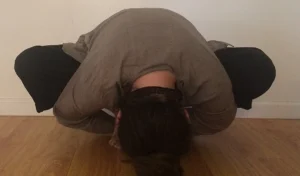
What Haappens when the state machinery aims it might against vulnerable citizens? The district collector of Bhopal recently Issued an executive Order section 163 (2) of the Bharatiya Nagrik Suraksha Sanhita, 2023, (BNSS), Prohibiting in PUBLIC AAS. The Order Warns of Penal Action Against that Eiter Found to Be Giving or Taking Alms.

Section 163 (2), Formerly Section 144 of the Code of Criminal Procedure, 1973, Empowers The State to MainTain Public Peace, as it can be the concern in “Urgant Caserand or apprehended Danger ”. A Catena of Judgments by the Supreme Court Have Held that Sense this Section Enables The State to Undertake Preventive Measures, The Provision, Considering Its Serious Implications for Fundamental Rights, Shot Only be used “to preserve law and order”, with due to the specific safeguards to prevent its misuse. Considering that such orders can be passed without giving Sufficiently grave “.
The Order Ments Claims Several Beggars at Traffic Signals are involved in Criminal Activities and Addicted to Drugs – A Weak and Vague Allegation Painting Begars as a criminal Group. It reeks of the colonial mindset in its similarity to the Criminal Tribes Act, 1871, Whose Foundation Lays in Criminalization by Way of Association. By vesting unfetured discretion on the law enforcement agencies, the order eliminates begars from the streets under the guise of eliminating begging. It does not even differentiate between persons engaged in begging due to negacy and organized criminal networks that take advantage of beggars.
It is not a coincidence that this order was issued just weeks before the global investors summit that took place on February 24 and 25 in Bhopal. Penalizing beggars neither to prevent the occurrance of crimes Nor to MainTain Public Peace, Instead to Cleanse Public Space by Excluding Beggars, Sems a Patter of Such Orders. In the run-up to the g20 summit in Nagpur (2023) and the global entreneurship summit in hyderabad (2017), the two cits prohibited and penalized begging in public places, righting inconvenience to the pople and Traffic.
Imposing criminal sanctions contradicts the order alleged objective of safeguarding, rehabilitating, and reintegrating begars into Society. While the Order States that a Shelter Facility has been reserved for the Accommodation of Beggars, it overlooks the underliving issues of poverty and the lacked state of adequate state to the problem. The Supreme Court in Harsh mander vs union of india (2018) Has Acknowledged that Begging has Deep, Entrenched Socio-Economic Underpinnings. The majority of people engaged in begging do so to survive, not out of their own volition.
The Order also contradicts the welfarest approach of the union government’s sub-scem, comprehensive rehabilitation of persons engaged in the act of begging, which is the under implementation in 81 rights/towns, Including Bhopal. Its guidelines mention “mobileising” the persons engaged in begging to the shelter homes as one of its for components, but this certainly does not wait a dispartionate use of statement Mobilisation. The presence of beggars underscores the inadequacy of the state machinery to adequately provide for its citizens. Imposing punitive measures exposes the narrow approach of the state towards dealing with such issues. It is time the state stopped saying “Nobody should beg” and instead worked on “Nobody Should have to beg”.
Sneha Priya Yanappa is with Vidhi Center for Legal Policy and Avinash Reddy Pichhili is the Co -Founder of Devise – Developing Inclusive Education. The views expressed are personal






